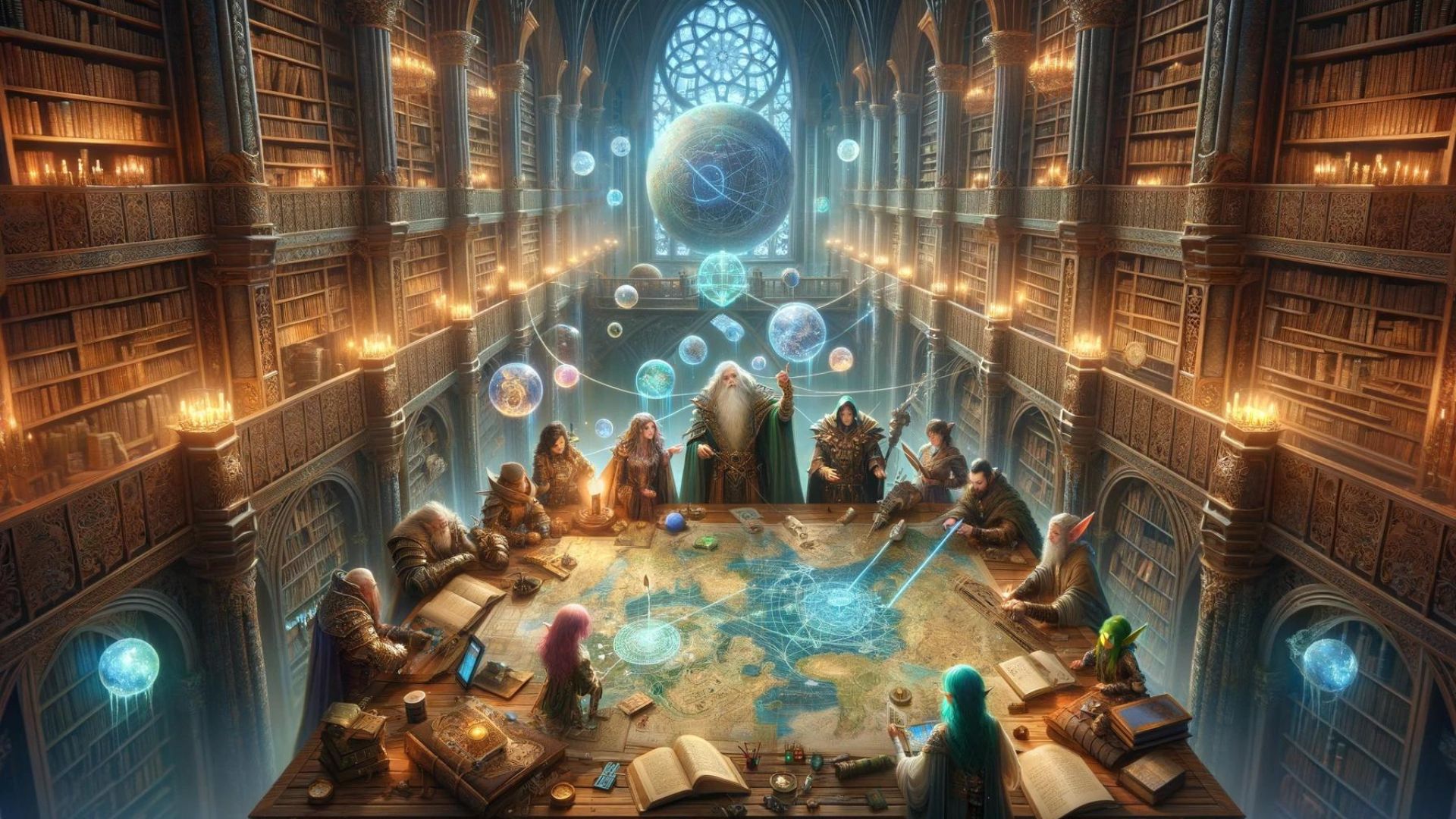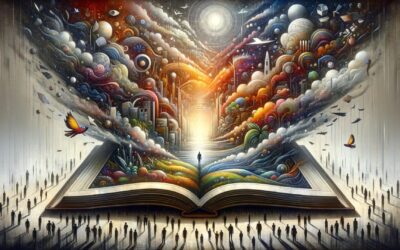Think of your favorite books or movies. Is it the characters that hook you, or the vivid worlds they inhabit? Imagine Harry Potter without Hogwarts, or the Star Wars saga without its galaxy of planets. A well-crafted world breathes life into your story, making it feel real to the reader.
World-Building is Like…
- …An Architect’s Blueprint: You wouldn’t build a house without a plan! Likewise, you need a framework for your world. This isn’t about restricting creativity, but preventing plot holes and inconsistencies.
- …The Spice in a Dish: Even a simple meal pops with the right seasoning. Your world’s details are the spices, adding flavor and depth that makes your story memorable.
- …Stage Setting: A play’s backdrop transports the audience. Your world-building does the same, creating atmosphere and grounding your characters.
Start With the Essentials
- Geography and Climate: Is your setting a vast desert planet, a frozen wasteland, or a lush archipelago? This impacts everything from how characters dress to the struggles they face.
- History and Culture: Give your world depth with a sense of its past. Ancient wars, religious beliefs, or societal structures all affect how your characters behave and see the world.
- Technology and Magic: What’s possible in your world? High-tech gadgets, fantastical spells, or something grounded in our own reality? Consistency is key!
Don’t Forget the Little Things
Small details pack a big punch! Think about:
- Food: What do people eat? A world where food is scarce creates a different feel than one filled with feasts and celebrations.
- Language: Do characters have unique slang, accents, or entire fictional languages?
- Clothing and Customs: Details like fashion or social rituals make your world feel lived-in, not just a stage for your characters to stand on.
Make it Matter
Your world isn’t a separate entity from your plot. Ask yourself:
- How does the setting shape your characters? Did a harsh upbringing make your hero tough? Did growing up in a rigid society make your villain rebellious?
- Does the world present unique challenges or opportunities? Opportunities for magic, or dangers like environmental threats, impact your characters’ choices.
Action Point: Start small. Pick one aspect – maybe it’s the governing system of your fantasy kingdom, or a unique plant with medicinal properties in your sci-fi world. Sketch out some details, then think about how that one thing ripples out, impacting other parts of your story. Watch your world come to life!
Why Should You Care?
- Immersive Storytelling: A well-developed world draws readers in. They stop seeing the page and start living in the place you’ve created.
- Grounded Characters: Strong characters are shaped by their environment. Understanding your world-building helps develop realistic and complex motivations.
- Unique and Engaging Plots: Your world can offer unusual challenges, resources, or societal structures that spark thrilling and original storylines.
Key Takeaways
- World-building provides a foundation and adds depth to your story.
- Start with overarching elements like geography, history, and technology.
- Small, specific details create texture and a sense of realism.
- Ensure your world-building connects to your characters and plot.
Keywords
- World-building: The process of crafting a fictional setting with its own societal, environmental, and historical elements.
- Geography: The physical terrain and landforms of your world (mountains, oceans, deserts, etc.).
- Climate: The prevailing weather patterns within different regions of your world.
- History: The past events, conflicts, and influential figures that shape your world.
- Culture: The beliefs, customs, and traditions of the people within your world.
- Technology: The level of scientific advancement and the tools available to people in your world.
- Magic: If applicable, the rules and systems governing magical abilities in your world.
- Plot: The series of events that make up your story.
- Character: The fictional individuals who experience the events of your story.
- Immersion: The feeling of being fully absorbed and transported into a fictional world.
Frequently Asked Questions
- How much detail is too much? Start with the essentials that impact your plot, then layer in detail as needed. Excessive info-dumping can bog down the story.
- What if I change my mind mid-story? Minor revisions are okay, but major changes could disrupt the plot. Some initial planning keeps things consistent.
- Do I need to map everything out visually? However it works for you! Maps, sketches, or written notes all help organize your thoughts.
Myth Buster
- Myth: World-building is just for fantasy and sci-fi.
- Reality: Even stories set in a familiar world benefit from focused world-building. Consider unique subcultures, historical events, or unusual settings within our real world.
Let’s Talk!
- What’s the most unusual element in a world you’ve created (or encountered in a book/movie)?
- Have you ever started a story and then realized your world needed more work?
- Do you prefer lots of detail in a story’s world-building or a more minimalist approach?
Share your world-building experiences in the comments below!












0 Comments